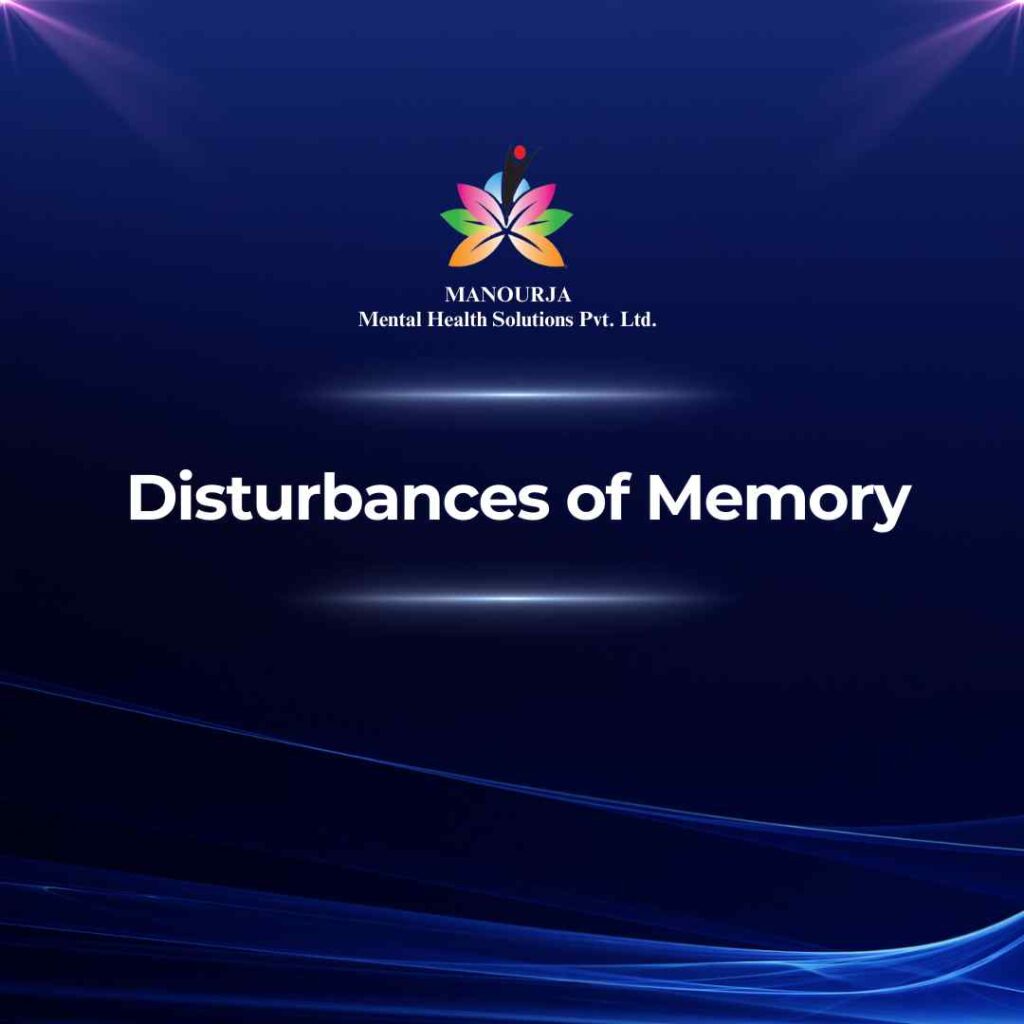Disturbances of Memory

Disturbances of memory refer to various types of impairments or alterations in the ability to encode, store, retain, and recall information. These disturbances can affect short-term memory, long-term memory, or both, and can significantly impact an individual’s daily functioning and quality of life. Memory disturbances can range from mild forgetfulness to severe amnesia.
Disturbances of Memory as a Sign and Symptom of Mental Illness
Memory disturbances can manifest in various forms, including:
- Amnesia: Loss of memory, which can be either partial or complete, affecting either short-term or long-term memory.
- Anterograde Amnesia: Inability to form new memories following the onset of a disorder.
- Anterograde Amnesia: Loss of pre-existing memories prior to the onset of a disorder.
- Confabulation: Fabrication of memories to fill in gaps in memory loss.
- Memory Impairment: Generalized reduction in the ability to recall information accurately and efficiently.
- Dissociative Amnesia: Memory loss, typically of personal information, associated with traumatic or stressful events.
Mental Illnesses Where These Disturbances Are Present
Dementia, including Alzheimer’s disease, is characterized by progressive memory loss and cognitive decline. Early signs often include difficulty remembering recent events, while later stages can involve severe memory impairments affecting both short-term and long-term memory.
- Amnestic Disorders
Amnestic disorders involve significant memory impairments without other cognitive deficits. These can result from brain injury, substance use, or neurological diseases, leading to both anterograde and retrograde amnesia.
- Traumatic Brain Injury (TBI)
TBI can cause memory disturbances, particularly if the injury affects areas of the brain involved in memory processing. This can result in both short-term and long-term memory deficits, as well as difficulties in forming new memories.
PTSD can include dissociative amnesia, where individuals have difficulty recalling specific details or entire events related to the trauma. Memory disturbances in PTSD often involve fragmented or intrusive memories of the traumatic event.
- Dissociative Disorders
Dissociative disorders, such as Dissociative Amnesia and Dissociative Identity Disorder (DID), involve significant memory disturbances. Individuals may experience gaps in their memory, especially regarding personal information or traumatic events.
In schizophrenia, memory disturbances are common, particularly deficits in working memory and episodic memory. These impairments can contribute to the cognitive difficulties experienced by individuals with the disorder.
- Substance Use Disorders
Chronic use of substances such as alcohol, benzodiazepines, and other drugs can lead to memory disturbances. For example, long-term alcohol abuse can result in Wernicke-Korsakoff syndrome, which involves severe memory impairments.
During manic or depressive episodes in bipolar disorder, individuals may experience memory disturbances, including difficulties in concentrating and retaining information. Memory impairments can also be related to the cognitive effects of mood episodes.
Major depressive disorder can involve memory disturbances, particularly in terms of concentration and recall. Depressed individuals may have difficulties remembering details or events, which can contribute to their overall cognitive impairment.
Delirium is an acute, often reversible condition that involves disturbances of consciousness and cognition, including memory. Individuals may experience confusion and difficulty recalling recent events or information.
Conclusion
Disturbances of memory are significant indicators of various mental health and medical disorders. Recognizing these disturbances is crucial for accurate diagnosis and effective treatment, helping individuals manage their symptoms and improve their memory function.
At MANOURJA, we believe in the transformative power of counseling. Our experienced therapists offer a safe and supportive space where you can explore your thoughts, emotions, and challenges. Through personalized counselling sessions, we’ll work together to develop coping strategies, build resilience, and achieve lasting positive change. Discover the path to a healthier, happier you with MANOURJA counselling services.
MANOURJA Rehabilitation Services
At MANOURJA, we’re dedicated to helping you in rebuild your life, after difficult times. Our rehabilitation services focus on understanding what you need to move forward, whether you’re recovering from addiction, trauma, or any psychological – social challenges. We create personalized plans, that are all about helping you, regain your strength and find hope again. With a caring team by your side, you’ll have the support to make real progress and take steps toward a brighter, healthier future.
